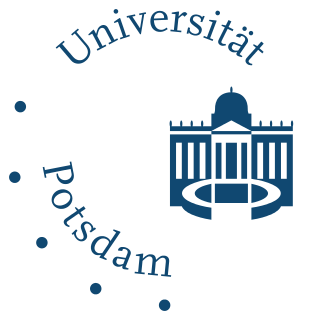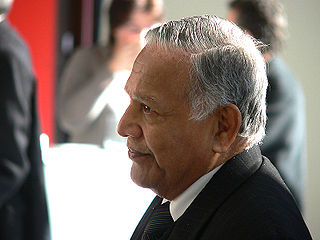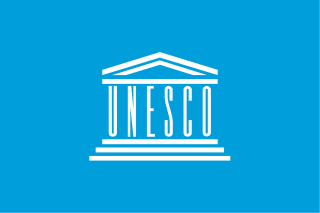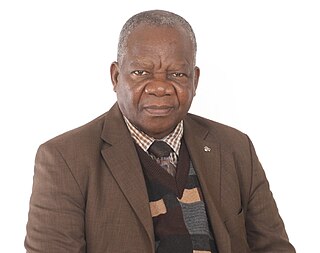Related Research Articles

The University for Peace (UPEACE) is an international university and intergovernmental organization established as a treaty organisation by the United Nations General Assembly in 1980. The university offers postgraduate, doctoral, and executive programmes related to the study of peace and conflict, environment and development, and international law.

Leipzig University, in Leipzig in Saxony, Germany, is one of the world's oldest universities and the second-oldest university in Germany. The university was founded on 2 December 1409 by Frederick I, Elector of Saxony and his brother William II, Margrave of Meissen, and originally comprised the four scholastic faculties. Since its inception, the university has engaged in teaching and research for over 600 years without interruption.

The University of Basel is a public research university in Basel, Switzerland. Founded on 4 April 1460, it is Switzerland's oldest university and among the world's oldest surviving universities. The university is traditionally counted among the leading institutions of higher learning in the country.

The Austrian Service Abroad is a non-profit organization funded by the Austrian government which sends young Austrians to work in partner institutions worldwide serving Holocaust commemoration in form of the Gedenkdienst, supporting vulnerable social groups and sustainability initiatives in form of the Austrian Social Service and realizing projects of peace within the framework of the Austrian Peace Service. The Austrian Service Abroad is the issuer of the annually conferred Austrian Holocaust Memorial Award.

UNESCO-CEPES was established in 1972 at Bucharest, Romania, as a de-centralized office for the European Centre for Higher Education. The centre was closed in 2011 due to lack of funding. The centre promoted international cooperation in the sphere of higher education among UNESCO's Member States in Central, Eastern and South-East Europe and also served Canada, the United States and Israel. Higher Education in Europe, a scholarly publication focusing on major problems and trends in higher education, was the official journal of UNESCO-CEPES. The CEPES headquarters was in the Kretzulescu Palace in Bucharest.

The University of Potsdam is a public university in Potsdam, capital of the state of Brandenburg, northeastern Germany.

Daniel "Dani" Karavan was an Israeli sculptor best known for site specific memorials and monuments which merge into the environment.
The European Association of History Educators (EuroClio) was established in 1992 with the support of the Council of Europe. The NGO works as a European wide facilitator for innovation and progress in history Education. The organisation contributes not only to the development, but also on the actual implementation of regional, national and European long-term projects, which focus on establishing knowledge, experience and expertise in the countries by training and consulting teachers. EuroClio develops teaching materials, builds and maintains professional Networks and acts as advisor to governments, international organisations, NGOs, History Teacher Associations and other Organisations. EuroClio is supported by the Europe for Citizens Programme of the European Union and has, for many years, Official Participatory Status and is part of the EU Stake Holder's Network in Education and Training.
Shlomo Avineri was an Israeli political scientist. He was a professor of Political Science at the Hebrew University of Jerusalem and member of the Israel Academy of Sciences and Humanities. He also served as a recurring visiting professor at the Central European University in Budapest, and as a fellow at Munich-based academic think tank Centrum für angewandte Politikforschung, offering advice to politicians. Avineri died on 1 December 2023 at the age of 90.

Christopher Gregory Weeramantry, AM was a Sri Lankan lawyer who was a Judge of the International Court of Justice (ICJ) from 1991 to 2000, serving as its vice-president from 1997 to 2000. Weeramantry was a judge of the Supreme Court of Sri Lanka from 1967 to 1972. He also served as an emeritus professor at Monash University and as the president of the International Association of Lawyers against Nuclear Arms.
The UNESCO-Madanjeet Singh Prize for the Promotion of Tolerance and Non-Violence is a prize awarded every two years by UNESCO. It was inaugurated in 1996, following the 1995 United Nations Year for Tolerance and in connection with the 125th anniversary of the birth of Mohandas Gandhi, funded by a donation from Madanjeet Singh.
The UNESCO/Bilbao Prize for the Promotion of a Culture of Human Rights, created in 1978 as the UNESCO Prize for Human Rights Education to mark the 30th anniversary of the adoption of the Universal Declaration of Human Rights, serves to honour the efforts of organizations or individuals that have made an exemplary contribution to the advancement of knowledge on human rights and building a universal culture of human rights. It was renamed on 5 May 2008 under the terms of a memorandum of understanding with Mayor of Bilbao Iñaki Azkuna whereby the municipality of Bilbao agreed to fund the prize for a period of three years.
The UNESCO Confucius Prize for Literacy recognizes the activities of outstanding individuals, governments or governmental agencies and non-governmental organizations (NGOs) working in literacy serving rural adults and out-of-school youth, particularly women and girls. The Prize was established in 2005 through the support of the Government of the People's Republic of China in honour of the great Chinese scholar Confucius. It is part of the International Literacy Prizes, which UNESCO awards every year in recognition of excellence and inspiring experiences in the field of literacy throughout the world. The Confucius Prize offers two awards of US$20,000 each, a medal and a diploma, as well as a study visit to literacy project sites in China.

Ravindra Kumar is a Political Scientist, Peace Educator, an Indologist, a Humanist, Cultural Anthropologist and a former Vice-Chancellor of CCS University, Meerut (India).

The United Nations Educational, Scientific and Cultural Organization is a specialized agency of the United Nations (UN) with the aim of promoting world peace and security through international cooperation in education, arts, sciences and culture. It has 194 member states and 12 associate members, as well as partners in the non-governmental, intergovernmental and private sector. Headquartered in Paris, France, UNESCO has 53 regional field offices and 199 national commissions.

Malcolm Sathiyanathan Adiseshiah, was an Indian development economist and educator. In 1976 he was awarded the Padma Bhushan, India's third-highest civilian award. In 1998, UNESCO created the Malcolm Adiseshiah International Literacy Prize in recognition of his contribution to education and literacy. He was nominated to the Rajya Sabha, the upper house of the Parliament of India, in 1978.
The UNESCO King Sejong Literacy Prize is an annual prize awarded to three institutions, organizations or individuals "for their contribution to the fight against illiteracy."

Michael Abiola Omolewa is a Nigerian diplomat, scholar, education historian, and civil servant. From September 2003 to October 2005, he served as the 32nd president of the General Conference of the United Nations Educational, Scientific and Cultural Organization (UNESCO). While president, Omolewa led UNESCO to adopt the International Declaration on Human Genetic Data and the Convention for the Safeguarding of Intangible Cultural Heritage. From January 2000 to August 2009, Omolewa served as permanent delegate and ambassador of Nigeria to UNESCO. At University of Lagos, on Wednesday 6 February 2019, Omolewa delivered the 5th Enoch Adeboye Annual Birthday Public Lecture; titled: Peace: The Global Quest.

Aishwarya Tipnis is an Indian architect, educator and heritage conservationist, whose eponymous practice Aishwarya Tipnis Architects focuses on heritage conservation of neglected monuments and significant buildings of India. In 2015, her work on the century-old Main Building of The Doon School received the Honourable Mention under the UNESCO Asia-Pacific Awards for Cultural Heritage Conservation. In 2016, the firm's restoration work on the walls and bastions of the 18th-century Mahidpur Fort, in Madhya Pradesh, was given the Award of Merit under the UNESCO Asia Pacific Heritage Awards. In 2018, she became the youngest architect to be appointed the Chevalier de l'Ordre des Arts et des Lettres by the French government for her preservation work of French heritage in India, particularly Chandernagore in West Bengal. Tipnis was part of the UNESCO Expert Team for preparing the Comprehensive Conservation Plan for the Darjeeling Himalayan Railway, a UNESCO World Heritage Site. She has been recognised as a Global Cultural Leader by the European Union in 2016.
References
- ↑ "UNESCO Prizes". unesdoc.unesco.org.